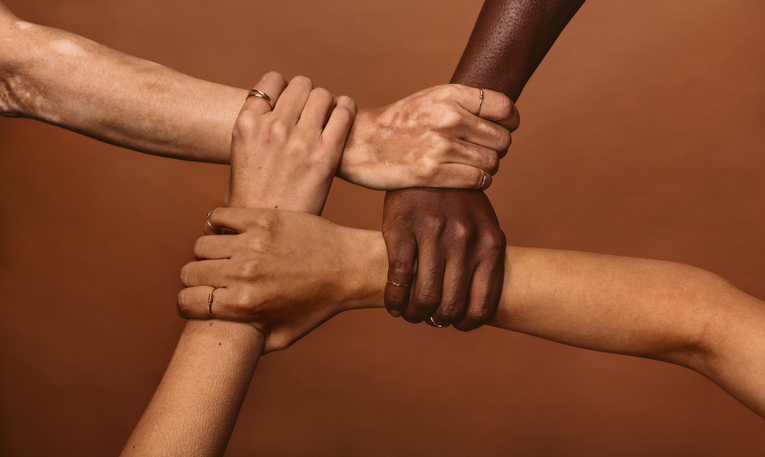
We learn a lot through the practice of meditation, mindfulness and yoga. We learn how to use our breath to support us through difficult moments. We learn how to set our drishti to keep us balanced on and off the mat. We learn how to set an intention and stick with it. But, one principle that I find we aren’t readily learning through the practice of yoga is seva. Seva being the Sanskrit term for selfless service. Now, I can argue all day that there really isn’t a such thing as a selfless service – if you feel good about what you’re doing, then it’s not selfless, because the reward is the good feeling. Or you may receive praise for your “selfless” act, and well, the second you receive praise there is an outcome for the individual who did a good and “selfless” thing. But, I digress. Let’s focus in on this concept of seva for what it actually means, a selfless act and let’s couple it with what’s necessary for social justice.
Social justice is about creating fair and equitable treatment for groups of people who experience unfair, inequitable and injust experiences due to social issues related to race, class, gender, religion, sexuality, etc. For most of us, the kneejerk selfless action is to donate money, donate time (i.e. volunteering), donate clothes, etc. – essentially, to donate and be giving – which is great. But, this does not create justice. This is charity. Justice starts with understanding what the inequities are, challenging our perceptions, notions and ideologies about those inequities, and moving forward to changing the dynamics of the system that continue to operate to create inequity or injustices. Justice is voting. Justice is creating policy. Justice is advocating for those who are voiceless or without the “power” to advocate for themselves. Justice is keeping your eyes and ears open, rather than turning a blind eye or deaf ear. This requires more than a donation or volunteering of time.
Selflessness must start with some focus on the self. In order for there to be growth or social change, each and every individual must be willing to drop what they think they know and begin to learn about and challenge the systems that privilege some and do not privilege others. As a starter to selflessness, we have to be willing to get a bit uncomfortable with ourselves and unlearn what we are holding onto about particular groups if we are hoping to see change for that group. In order to truly do good this society, selflessness requires deep self reflection and self-inquiry, an understanding of ourselves, before we can even attempt to give anything to someone else. Think about what you hear on an airplane: “put your oxygen mask on first, before you help your child or neighbor.” The truth in this statement isn’t about saving yourself first, the truth in this statement is, we aren’t any good to anybody else, if we don’t take care of ourselves first. Similarly, there is no good to be done with regards to social change or social justice if we haven’t done the necessary work to unlearn and challenge our perceptions, notions and ideologies about particular groups of people and what they need, rather than what we think they need.
So, consider doing things a bit differently, rather than assuming you know what’s needed or that your service is selfless. Social justice and social change requires people who are willing to say “I don’t have the answers, but I’m willing to learn and grow so I may be able to do better by others.”





